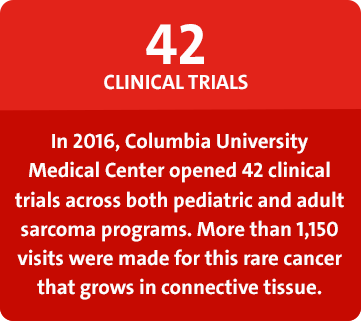Orthopedic Oncology

Dr. Wakenda K. Tyler
Chief, Orthopedic Oncology
In 2017, Wakenda K. Tyler, MD, MPH, was named Chief of the Orthopedic Oncology Service, bringing expertise in the treatment of benign and malignant tumors that leverages the latest advances in nonoperative therapies and minimally invasive and reconstructive surgical techniques. Under Dr. Tyler’s leadership, the service specializes in the diagnosis and management of primary soft tissue and bone cancers, sarcomas, and metastatic bone cancer in children and adults. The strength of the program lies in a multidisciplinary approach for the care of each patient in which orthopedic surgeons collaborate with medical and radiation oncologists to determine and carry out the optimal course of treatment.
Targeted Therapies
Dr. Tyler and her colleagues are pursuing targeted therapy for patients requiring chemotherapy. Genetic testing is conducted on malignant tumors and some benign tumors to identify the genetic abnormality within that tumor that will allow our physicians to target it with some of the newer therapeutic agents being developed. Collecting these gene analyses will enable them to identify specific genes in the future that either allow for a good response or a poor response to therapy and then potentially alter therapy with greater precision based on that analysis.
Research Pursuits

-
For patients with metastatic disease to the bone, many of the current therapies do not work. Dr. Tyler and her colleagues are currently looking at antiangiogenic and anti-vascular tumor therapies to block tumor angiogenesis in the bone, with a goal to restrict the blood supply to those tumors and inhibit the cancer cells from spreading. They are also studying the effect of the bone environment on these cancer cells that makes them impervious to chemotherapy. For a variety of reasons, the bone environment allows cancer to grow, rather than allowing the chemotherapy to have the same impact on the cells as it does in other parts of the body.
-
Other research interests focus on conditions that lead to osteolysis, as well as the effectiveness of medication in penetrating the site of bone grafts and strengthening the bone and prosthesis union.



